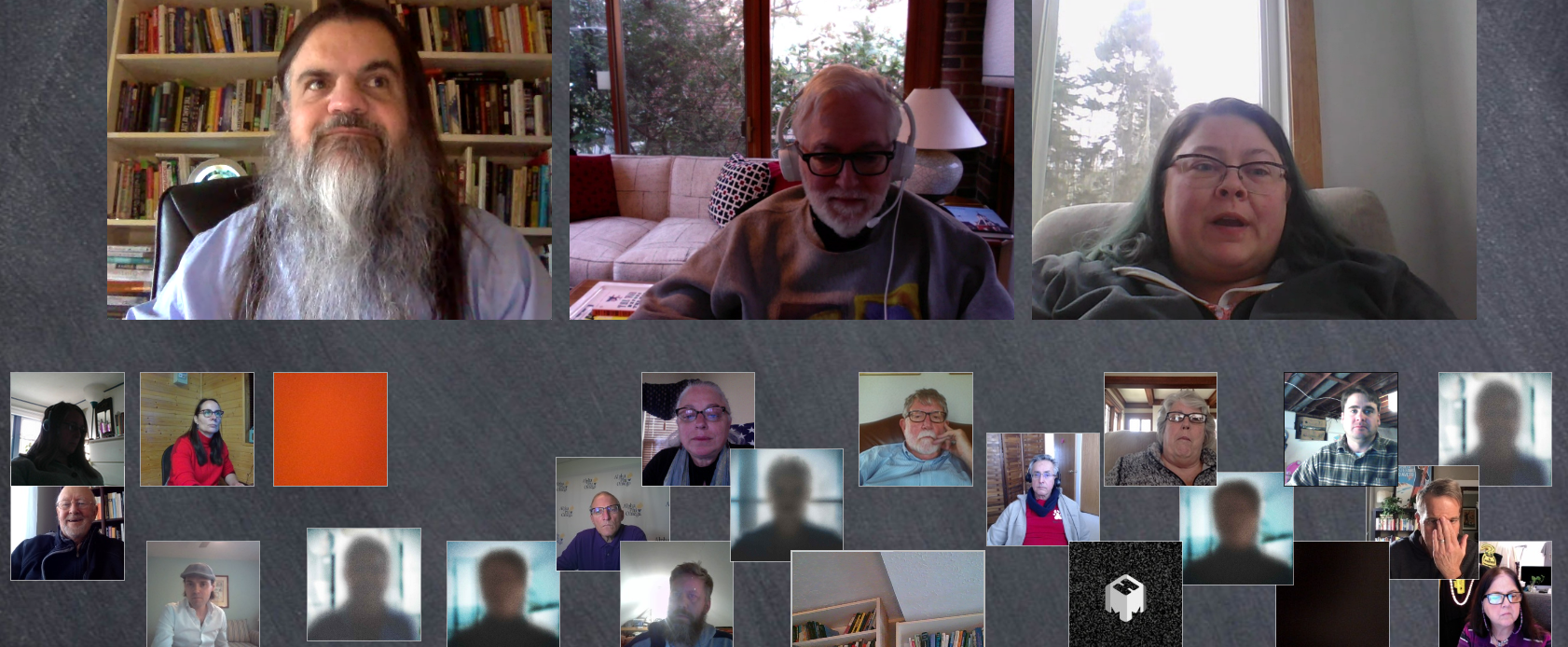How do we teach well online? That was the subject of last week’s Future Trends Forum.
The format was atypical for us. It was a community conversation, not centered on a guest, but driven by participants’ interests and stories. We wanted to make available a welcoming space where people could raise questions and air ideas.
I wanted to share this process and these results here because the topic is so important, as higher ed shifts increasingly online, and also because the format was interesting.
First, here’s the full recording:
During our conversation people raised a series of points, practices, questions, and topics, such as a story about the University of Central Florida that had some success by committing to online education being on par with face to face, and also funding faculty professional with a student fee.
More:
“Do students associate being in the auditorium with entertainment?”
“How best to support group work and collaboration for entirely online learning?”
“We need to act the part of digital professionals to teach our students how to be digital professionals”
“I’ve been making a point to use our synch class meetings to put students into breakout rooms every session so they have opportunities to connect and converse and be active.”
“My course has no tests and everything leads to a capstone assignment that is a Portfolio of work they’ve done through the semester. Requires a fair amount of TLC just to get them not to freak out about that.”
“Educational uses of text based discussions online touted invisibility as an asset.”
“students very willingly make videos in many social media platforms – so could the issue be control? If the camera must be on in class – teacher in control. If camera on in a TikTok – student in control.”

People also shared references, including:
- Ronald Barnett‘s work
- Beth Cougler Blom, Design to Engage: How to Create and Facilitate a Great Learning Experience for Any Group
- Tom Haymes, Learn at Your Own Risk: 9 Strategies for Thriving in a Pandemic and Beyond
- Rachael Jordan & Megan Eberhardt-Alstota, Scaffolding Successful Group Work Online and Off!
- Diana Laurillard, “The pedagogical challenges to collaborative technologies”
- _____, “Pedagogical forms for mobile learning: framing research questions”
- Quality Matters
- Supporting Active Learning & Technological Innovation in Studies of Education (SALTISE)
- Setting Online Groups up for Success webinar
- The Teaching Toolset Triangle
Overall, we covered a range of ground. The total effect wasn’t synoptic, nor was it intended to be. Instead, it was a kind of community gathering for organic discussion. Put another way, it was a single slice through the problem of online learning, and we turned up good stuff through the cut.
Many thanks to the fine people who participated and contributed!





Very nice. Any mention of the work of Robert Parnes (Confer, Advertel) and Karl Zinn (U of Michigan CRLT) in this? I had some mixed online/FTF classes at Michigan in the 80s using Confer – particularly a class from John Lawler, “Computers and Linguistics” – to augment the discussion section, and I wonder if you could replicate that discussion section feeling with online tools like Github (or Gitlab or Gitea) that have a strongly threaded multiplayer discussion section (“issues”).
Nobody brought up Michigan.
I could have, especially if I were a participant. I, too, took mixed classes with Confer in the 1980s, with Eric Rabkin. Never took a class with John, but met him over Confer, and have been friends since.